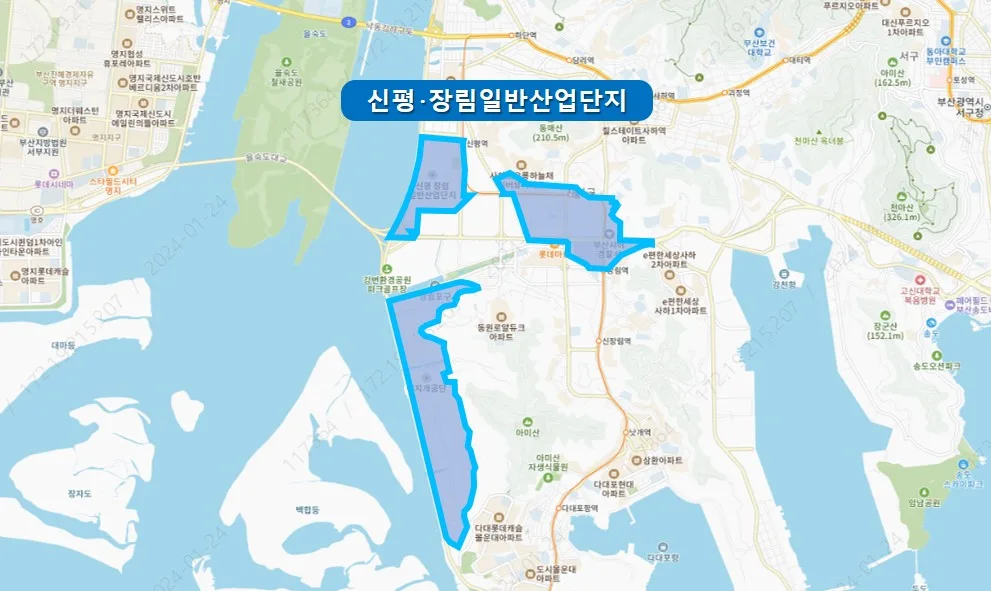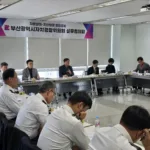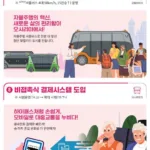Busan, South Korea — The City of Busan announced today that the Sinpyeong-Jangnim Industrial Complex has been designated as a focal point for “Aged Key Industrial Complex Competitiveness Enhancement” initiative. This initiative is part of a strategic move by the government to strengthen the competitiveness of aging industrial hubs through digitization and eco-friendly transformations. The project aims at reviving the local economy by enhancing the industrial location’s competitiveness.
Over the next three years, starting this year, a comprehensive investment of KRW 254.6 billion (USD 195.85 million) will be allocated towards 19 different projects. These projects are focused on digitizing manufacturing processes, reducing carbon footprints, refurbishing old infrastructure, and expanding convenience facilities. The funding will be comprised of contributions from the national government (KRW 154.6 billion), the city of Busan (KRW 73.5 billion), and private entities (KRW 26.5 billion).
The Sinpyeong-Jangnim General Industrial Complex, located in the Saha District of Busan, covers an area of 2,815,000 square meters and hosts 701 companies employing 14,569 workers as of the fourth quarter of 2022. The complex houses businesses specializing in assembled metal machinery, textiles and clothing, surface treatment, and transportation equipment.
The competitiveness enhancement project was launched after the Sinpyeong-Jangnim complex was selected through a public competition by the Aged Key Industrial Complex Competitiveness Enhancement Committee in April last year. The project’s vision is to create an advanced manufacturing hub where industry, environment, and people coexist, driving regional development.
The detailed plan includes:
- Manufacturing Innovation: Acceleration of smart factory construction and enhancement, including the establishment of a process innovation simulation center focusing on advanced materials and parts manufacturing processes. A smart logistics platform aimed at root industries is also part of the plan.
- Talent Development: Programs for cultivating advanced talents in smart manufacturing.
- Eco-friendly and Low-carbon Initiatives: Projects to transform the industrial complex into a low-carbon, green industrial park, including a non-point source pollution reduction project and climate-responsive urban forestry.
- Innovation Spaces: Remodeling of old factories and construction of a youth culture center, aiming to improve the working environment and make the complex more appealing to young professionals.
Mayor Park Heong-joon emphasized the urgency of innovating outdated industrial complexes to respond to changes in industrial structures and rejuvenate stagnant industrial districts. “Our city is committed to ensuring that the Sinpyeong-Jangnim Industrial Complex serves as a hub for industrial location competitiveness and innovation, driving the local economy forward,” said Mayor Park.
The designation as a competitiveness enhancement initiative enables the Sinpyeong-Jangnim Industrial Complex to officially commence the planned projects with financial support from the national budget. This year, with an initial national funding of KRW 14.5 billion, the focus will be on promoting smart green industrial parks and regenerating aging industrial complexes.
This ambitious project not only aims to modernize the industrial landscape of Busan but also to set a benchmark for the transformation of aging industrial complexes across the nation. By embracing digital transformation, eco-friendly practices, and creating spaces that attract the younger workforce, Busan sets a precedent for sustainable industrial development that could rejuvenate local economies and pave the way for a greener, more innovative future.



